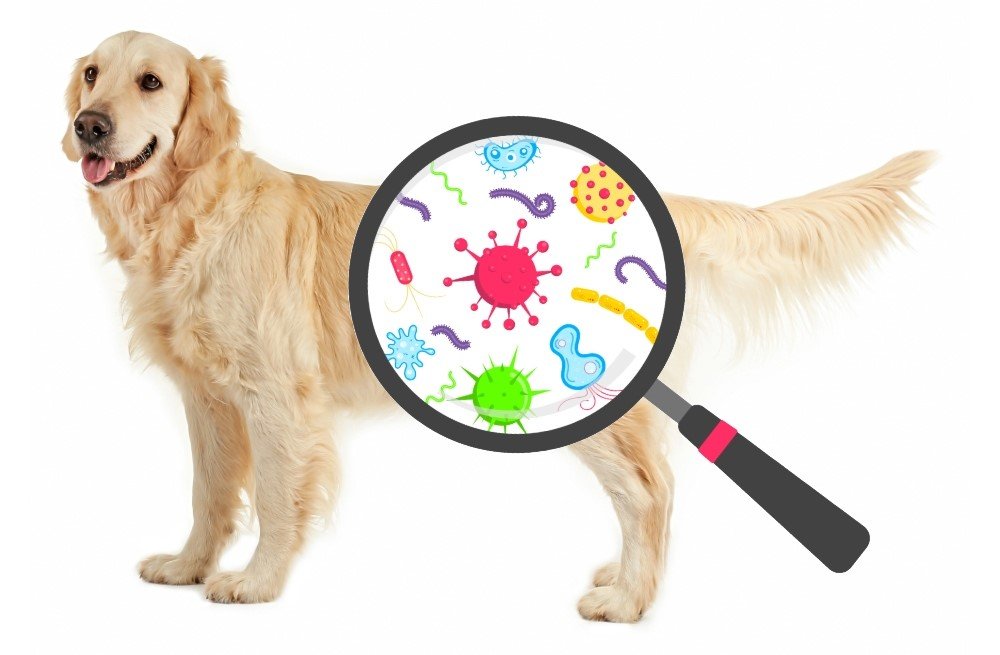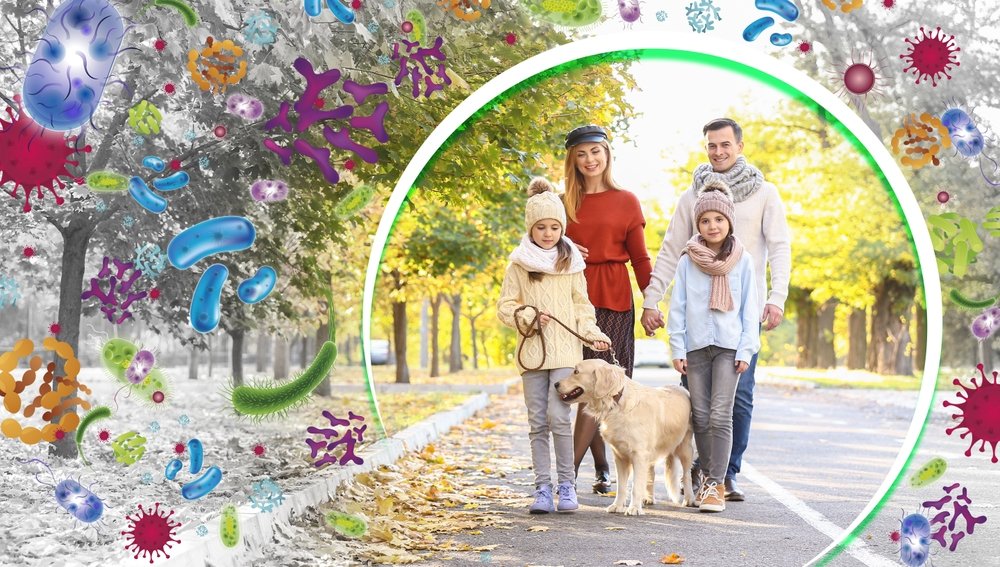How Pets Affect the Immune System — A Surprising Health Ally in Your Home
When exploring how pets affect the immune system, most people don’t immediately consider their furry companions. Instead, they focus on vitamins, diet, and exercise. However, science shows that pets play a significant role in shaping our immune health. By reducing allergies and improving gut balance, pets can positively rewire how our bodies respond to environmental challenges. Let’s dive into the fascinating ways how pets affect the immune system and review key studies revealing the health benefits of living with animals.
The Amish Paradox: What Their Lifestyle Reveals About How Pets Affect the Immune System
The Amish are a religious community in North America known for their traditional way of life. Scientists studying how pets affect the immune system have been intrigued by the Amish’s surprisingly low rates of childhood allergies and asthma. Amish children are constantly exposed to farm dust and animals, offering a unique perspective on how pets affect the immune system in real-life settings. Despite limited access to modern hygiene products, these children experience far fewer immune-related conditions than most children in the general population. This evidence adds to growing knowledge about how pets affect the immune system and its role in reducing allergies and boosting immune resilience.

A landmark study in 2016 compared Amish children in Indiana with Hutterite children in South Dakota. Both groups share similar diets and European ancestry, but their farming practices differ greatly. The Hutterites use industrial farming and live separately from their animals. In contrast, Amish children grow up in close contact with livestock from an early age. The study revealed that Amish children had stronger, better-regulated immune responses, likely due to their environment rich in microbial diversity.
How Pets Affect the Immune System: The Role of Regulatory T Cells and Farm Life
The key to the Amish children’s superior immune systems lies in regulatory T cells. These immune cells help modulate responses, preventing the immune system from overreacting to harmless stimuli like pollen or pet dander.
The Amish children exhibited higher levels and better-functioning regulatory T cells, which helped them avoid allergies, asthma, and eczema. Their homes contained dust rich in microbial life. This points to a clear link between animal exposure and stronger immune health.
How Pets Affect the Immune System: The Microbial Link and the Mini-Farm Effect
Research shows that children who grow up with multiple pets—especially in their early years—benefit from what scientists call the “mini-farm effect.” This effect suggests that exposure to animal microbes at home mimics farm life. As a result, it can significantly lower the risk of developing allergies and autoimmune conditions.
One study found that for each additional pet in the home, a child’s risk of allergies and asthma declined. Dogs, cats, and even birds contribute unique microbial populations to the home environment. These microbes stimulate the immune system to adapt, train, and regulate itself more effectively.
How Pets Affect the Immune System: Pets as Microbial Gateways and Their Role in Shaping Our Microbiome
A hot topic among scientists is whether pets can change the composition of our microbiomes—the colonies of bacteria that live on our skin, in our mouths, and especially in our digestive tracts.

Some researchers argue that pets don’t transfer their own bacteria into our microbiomes in any permanent way. Others believe that even transient microbial interactions can stimulate the immune system in positive ways.
Professor Nasia Safdar of the University of Wisconsin is exploring this with studies comparing the gut bacteria of pet owners and their animals over time. While the evidence for long-term microbial integration remains uncertain, the temporary microbial exposure from pet fur, saliva, and paws is enough to challenge and train our immune systems.
Daily Pet Exposure and Immune Stimulation
Microbial exposure doesn’t need to result in permanent colonization to be effective. Experts like Jack Gilbert from the University of California San Diego suggest that pets act as microbial stimulators, exposing us to familiar animal microbes that our bodies have evolved to recognize over millennia.
Whether it’s from stroking your cat or playing fetch with your dog, these small interactions help keep the immune system alert and balanced. Gilbert suggests that exposure to cow, dog, or horse microbes triggers immune responses that train the body not to overreact to harmless stimuli—a key feature in preventing autoimmune conditions.
Lifestyle Factors Amplified by Pet Ownership
Beyond direct microbial exposure, pets influence your immune health in lifestyle-enhancing ways. For example:
- Increased Outdoor Activity: Dog owners, in particular, are more likely to engage in regular walks, which expose them to outdoor microbes in soil and air that further enrich microbial diversity.
- Reduced Stress: Multiple studies confirm that spending time with pets reduces cortisol levels (a stress hormone), which plays a vital role in immune suppression. A calm body fosters better immune function.
- Improved Mental Health: Positive mental well-being correlates with better immunity. The emotional comfort from pets reduces anxiety and depression, which, in turn, strengthens immune resilience.
Indigenous Microbiomes: Insights from Irish Travellers and Hunter-Gatherers
Following the Amish study, researchers like Fergus Shanahan began examining other communities with close animal contact. Irish Travellers—nomadic people often living with multiple animals—were found to have gut microbiomes more similar to indigenous populations in Mongolia, Peru, and Tanzania.

Despite facing poor living conditions and healthcare access, these populations exhibited low rates of autoimmune diseases such as Crohn’s, lupus, and ulcerative colitis. Their lifestyle, rich in animal interaction and environmental exposure, helped preserve an ancient microbial profile—potentially the key to preventing modern immune-related illnesses.
Reintroducing Animals into Modern Life
Urban living and excessive hygiene have limited our microbial exposure, possibly contributing to rising allergy and autoimmune disease rates. In response, some scientists advocate for structured reintroduction of animal interaction.
Studies from Italy and the U.S. have shown promising results. For example:
- Rehoming Dogs for Seniors: Researchers at the University of Arizona found that placing dogs with older adults improved immune markers and emotional health.
- Petting Horses on Educational Farms: Italian children without pets who engaged with horses weekly saw improved gut microbial activity and immune biomarkers.
These examples show that even limited interaction with animals can positively impact the immune system.
What Type of Pets Offer the Most Immune Benefits?

Not all pets affect immunity in the same way. While every animal introduces unique microbes, dogs have the most documented health benefits, likely due to their outdoor habits and close physical contact with humans.
Dogs:
- Increase microbial diversity in the home
- Encourage outdoor exercise
- Lower allergy and asthma risk by 13-14%
Cats:
- Offer emotional comfort and microbial exposure
- May reduce eczema risk in infants when present during early development
Farm Animals:
- Provide the highest level of immune benefit
- Associated with up to a 50% reduction in allergy risk
Common Myths and Misconceptions
Let’s bust a few myths surrounding pet ownership and immunity:
- “All pets are dirty and dangerous for health.”
Truth: While pets carry microbes, many of these are beneficial. Controlled exposure helps strengthen, not weaken, our immune response. - “Pet allergens always worsen asthma.”
Truth: Early-life exposure to pet dander can reduce the risk of developing asthma later on. - “Pet microbes colonize us permanently.”
Truth: Most pet microbes don’t stick around long-term but stimulate beneficial immune responses as they pass through.
Future Research: Can We Engineer Healthier Microbiomes Through Pets?
The future of immunity may include targeted interventions involving pets. Scientists are exploring:

- Pet-based Probiotics: Creating pet food that boosts beneficial bacteria in animals, with potential transfer effects to owners.
- Microbial Therapy: Controlled exposure to specific animal microbes to treat or prevent allergies.
- Genetic Microbiome Mapping: Analyzing which human genes respond best to certain animal microbes for personalized immune therapies.
As we uncover more about the microbiome, it’s becoming clear that animals may play a bigger role in medicine than we ever imagined.
The Pet Prescription for a Stronger Immune System
Living with pets offers more than companionship—it delivers a continuous dose of microbial training that strengthens and balances our immune system. From the Amish farms of Indiana to the yurts of Mongolia, communities that live closely with animals demonstrate the power of environmental exposure in immune development.
While not a miracle cure, owning pets during key life stages—especially early childhood—can reduce the risk of allergies, eczema, and autoimmune diseases. Even in adulthood, pets contribute to better mental health, increased physical activity, and possibly improved microbial diversity.
As science continues to unravel the complex interplay between humans, microbes, and animals, one thing remains clear: the creatures we share our homes with might just be keeping us healthier than we ever realized.




